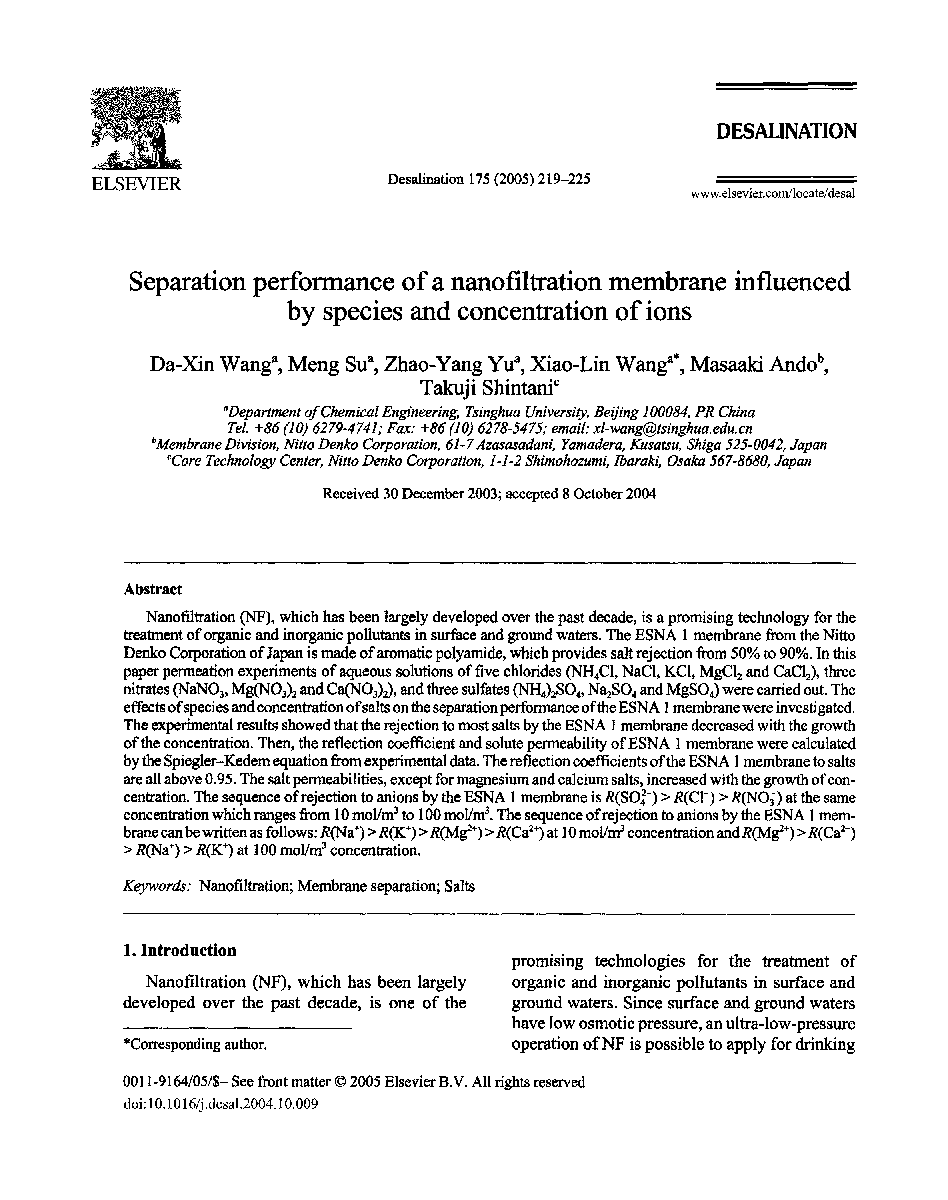| Article ID | Journal | Published Year | Pages | File Type |
|---|---|---|---|---|
| 10386252 | Desalination | 2005 | 7 Pages |
Abstract
Nanofiltration (NF), which has been largely developed over the past decade, is a promising technology for the treatment of organic and inorganic pollutants in surface and ground waters. The ESNA 1 membrane from the Nitto Denko Corporation of Japan is made of aromatic polyamide, which provides salt rejection from 50% to 90%. In this paper permeation experiments of aqueous solutions of five chlorides (NH4Cl, NaCl, KCl, MgCl2 and CaCl2), three nitrates (NaNO3, Mg(NO3)2 and Ca(NO3)2), and three sulfates (NH4)2SO4, Na2SO4 and MgSO4) were carried out. The effects of species and concentration of salts on the separation performance of the ESNA 1 membrane were investigated. The experimental results showed that the rejection to most salts by the ESNA 1 membrane decreased with the growth of the concentration. Then, the reflection coefficient and solute permeability of ESNA 1 membrane were calculated by the Spiegler-Kedem equation from experimental data. The reflection coefficients of the ESNA 1 membrane to salts are all above 0.95. The salt permeabilities, except for magnesium and calcium salts, increased with the growth of concentration. The sequence of rejection to anions by the ESNA 1 membrane is R(SO2â4) > R(Clâ) > R(NOâ3) at the same concentration which ranges from 10 mol/m3 to 100 mol/m3. The sequence of rejection to anions by the ESNA 1 membrane can be written as follows: R(Na+) > R(K+) > R(Mg2+) > R(Ca2+) at 10 mol/m3 concentration and R(Mg2+) > R(Ca2+) > R(Na+) > R(K+) at 100 mol/m3 concentration.
Related Topics
Physical Sciences and Engineering
Chemical Engineering
Filtration and Separation
Authors
Da-Xin Wang, Meng Su, Zhao-Yang Yu, Xiao-Lin Wang, Masaaki Ando, Takuji Shintani,
